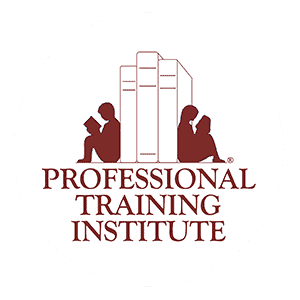
When a child is diagnosed with dyslexia, parents often want to know what the road to reading and spelling success will look like. While this road varies from child to child, there are certain landmarks that characterize the journey. These include initial success with word attack which leads to improvement in automatic word recognition and eventually improvement in spelling. The following case study describes one child and her experience.**
When a child is diagnosed with dyslexia, it’s important to understand both the primary and secondary characteristics of the condition. Primary characteristics of dyslexia include difficulties with phonological awareness, decoding, and spelling—challenges that directly affect reading acquisition and were evident early in Karen’s case. Secondary characteristics of dyslexia can emerge as a result of these struggles and may include reduced reading fluency, poor spelling accuracy, and limited reading comprehension. Recognizing these markers early allows educators and families to provide targeted support that fosters long-term success.
Karen’s mother Anna came to Commonwealth Learning Center when Karen was in the middle of second grade. Karen’s speech was remarkable for phoneme reversals – She said the word breakfast as bress-ket, the word animal as aminal, and the word especially as peshasly. Karen had not made expected progress in reading during her first grade year and her parents were growing restless with the Response to Intervention Model at the school. They decided to seek a private evaluation, and during the debrief following the evaluation, the neuropsychologist suggested that they seek private tutoring. Anna and I met and talked about Karen’s likes and dislikes and how she felt about possibly starting tutoring soon. This information is just as important as testing as it helps ensure a good teacher match and a smooth start to tutoring. I asked permission to speak with the neuropsychologist given the absence of a written evaluation. (The report was forthcoming but Karen’s parents did not want to wait.) The neuropsychologist described Karen as a lovely and bright child with severely compromised phonological awareness and rapid naming, hallmarks of dyslexia. Not surprisingly, her word attack skills, word identification, and single-word spelling were also below the 16th percentile. Her spelling was not phonetic; in other words, she did not represent each sound of the word with a letter. She wrote luc for lunch, bet for best, and sak for snack.
Karen began her twice weekly Orton-Gillingham tutorials the following week. She enjoyed the one-to-one time with her teacher and relished the opportunity to play games that incorporated her interests – word cards with kitten stickers on the back and sentences written with purple marker. She wrote in sand and on shaving cream and in big letters in the air. Her ability to read words and eventually books grew alongside her confidence. After six months, Karen had some benchmark testing. Her phonological awareness was in the 42nd percentile and her word attack skills were now in the 34th percentile, but her word identification and spelling were below the 25th. This is common. Word attack is measured by giving the child phonetically regular words (words that can be “sounded out”); many of them are single-syllable words. This is just what she had been working on in tutoring. Word identification and spelling on most assessments is measured by giving a child a mix of phonetically regular and irregular words.
Karen continued with tutoring, learning syllable types, spelling generalizations, and syllable division strategies. Karen had another set of benchmark testing a year later, one and a half years into tutoring, at the start of her fourth grade year. At that time, Karen was reading grade level text according to the Qualitative Reading Inventory. She had solidly average word attack and word identification skills (both hovering around the 50th percentile). Karen had made gains in spelling; her mistakes were so much better! She represented each sound she heard in words, but she had a terribly hard time knowing whether to spell compete as compeet, compete, or compeat…They all sounded right! The good news was that since Karen’s spelling mistakes were better, most of her errors were the type that could be corrected through spellcheck software. The other area that lagged behind was Karen’s reading fluency – While her accuracy was fantastic (98% or more of the words read correctly), her rate was below expectations for grade level. It is fairly common for students with dyslexia to read more slowly than their peers, and, for this reason, many access audiobooks when the reading load becomes too heavy to carry without support. While Karen does not yet need this support as a fourth grader, it is likely that she will as she progresses through the grades.
Karen no longer attends tutoring during the school year, but she plans to return during the summers to ensure that she maintains and improves upon the skills that she has worked so hard to obtain. Oh, and she wants to talk to her tutor about her new favorite book series: The Chronicles of Narnia!
If overcoming dyslexia like Karen is your goal, the Commonwealth Learning Center is here to guide you to success!
Submitted by Shadi Tayarani, M.Ed
Director of Commonwealth Learning Center, Danvers
** Names have been changed to protect the family’s privacy.










Jaydin Skinner says: